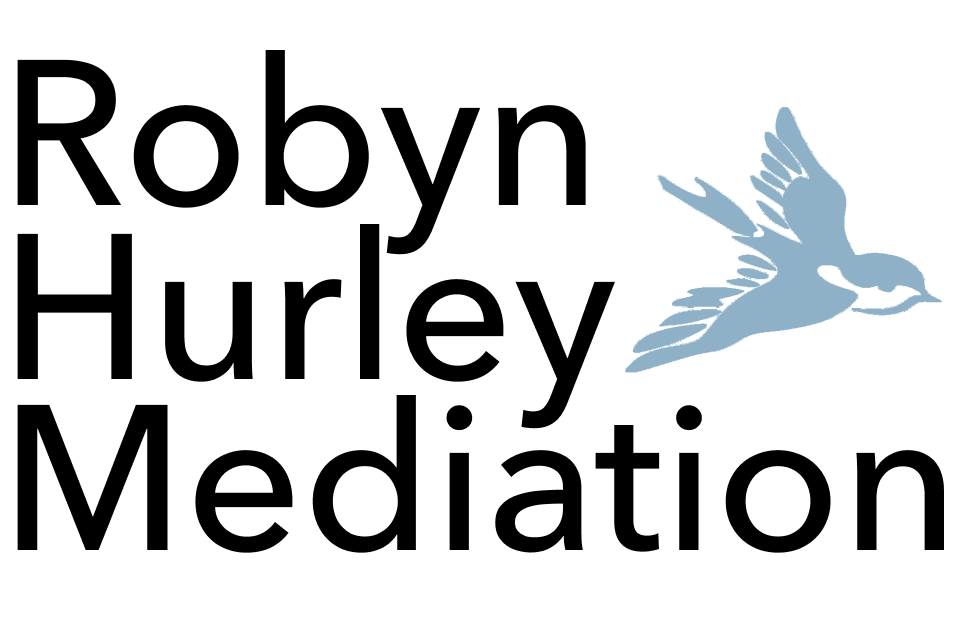A Collaborative Approach
Robyn Hurley is an accredited family mediator with the Ontario Association of Family Mediation, and has worked in in the field of family mediation for over seven years. She brings a unique perspective to mediation as a result of her work as a family lawyer and children’s lawyer. She splits her time between her private mediaton clients, mediating cases at the Superior Court of Justice Family Court, Toronto, and providing child protection mediation for ADR-Link in London, Ontario.
A collaborative approach to Mediation
Robyn’s approach to mediation is collaborative. She creates a comfortable environment in which parties are able to tackle difficult issues in a positive and productive manner with a focus on moving forward. Robyn works together with the parties, their lawyers, and other professionals involved, including financial advisors, therapists or social workers, to help reach agreements.
Robyn offers services in all aspects of family mediation, including:
- Parenting plans (tools to help parents develop child-focused plans for decision-making, schedules, and other post-separation parenting issues)
- Communication (helping parents develop tools to communicate effectively, and create co-parenting arrangements to best support their children post-separation).
- Financial Matters (assisting parties in resolving issues like child support, special/extraordinary expenses, spousal support, property, and related issues).
Benefits of Family Mediation:
There are several benefits of using mediation over other dispute resolutions processes, including:
- A more amicable process. Since mediation is voluntary and is a facilitated negotiation between the parties, the parties are directly at the forefront of the discussions throughout and any settlement reached requires both party’s agreement. The Mediator helps keep the parties focused on moving forward and minimizing conflict. Mediation particularly lends itself to well to parties who want to maintain a positive relationship post-separation
- A shared involvement in outcomes. Since parties actively participate in decision-making they can design outcomes that best meet their own needs and in particular, the needs of their children
- Less costly than alternatives. Since the costs of mediation are shared by both parties and having the parties working together in the decision making process, the overall costs are often less than other means of reaching post-separation results, particularly compared to the court process
- Quicker process. Mediation is a much quicker process than court. The timing of the mediation process will depend on the schedules of participants, readiness of the parties to participate, and the time required for parties to obtain any necessary information or documentation for mediation (e.g. financial documentation, therapist input for child, etc.)
What is Family Mediation?
Mediation is a process for resolving disputes in which a neutral third party helps people communicate effectively to reach agreements. Family Mediation allows separating couples to discuss issues in a neutral, more collaborative environment. Issues that can arise may include parenting decisions, schedules, child support, spousal support, property, etc. The mediation process is much less adversarial than court and is often chosen as a more amicable way of reaching a settlement, allowing for better co-parenting relationships post-separation. It should be noted that in situations of domestic violence or intimidation, the mediation process may not be suitable or may need to be adapted. All mediators accredited with the Ontario Association of Family Mediation have training in screening for cases of domestic violence.
The Mediation Process
Mediation is a voluntary process. This means that in order to begin the mediation process, both parties must be willing to participate. If either party would like to obtain further information about any aspect of family mediation services, they may contact us by submitting the form at the bottom or the page or by emailing info@robynhurley.com. Additional, detailed information about our mediation services is found on the Agreement to Mediate document (Resources section). This agreement is reviewed with each party and signed before the process begins.
The process begins by each party submitting a confidential intake form to info@robynhurley.com. Once both parties have submitted their intake forms, an intake meeting will be scheduled with Robyn and each party separately. These meetings are confidential and provide an opportunity to discuss the mediation process, the issues to be mediated, any preparatory work that needs to be done prior to mediation, and any questions clients may have. The meeting typically lasts for one hour.
Obtaining Legal Advice
It is recommended that each party receive separate, independent legal advice before initiating mediation. At minimum, the parties will need to obtain independent legal advice throughout the process and after reaching any agreement in mediation. See the Resources page for information on obtaining legal advice. If an agreement is reached in mediation it does not become legally binding until the parties receive legal advice on it and turn the agreement into a legally binding Separation Agreement or Court Order, if applicable. Information on how this process can be achieved is discussed in mediation.
The family mediation process works in conjunction with the parties each receiving independent legal advice and financial advice, if applicable. Some parties choose to bring their lawyers to the mediation session(s) to assist them making decisions in the process. Others may choose to attend mediation sessions independently and receive legal advice throughout the process and before signing an agreement.
For additional information about family mediation, separation and divorce, see the Resources section.

